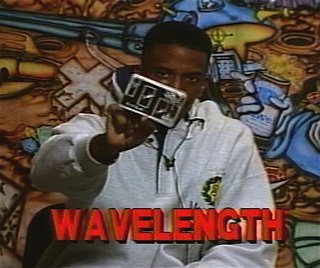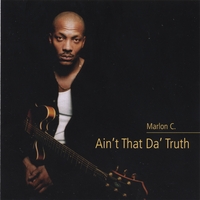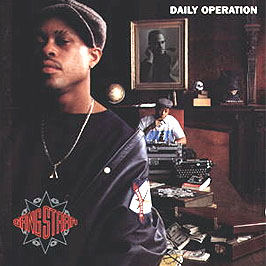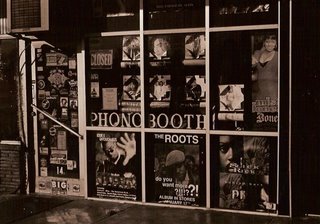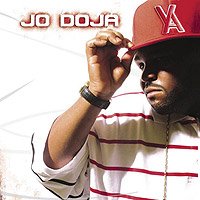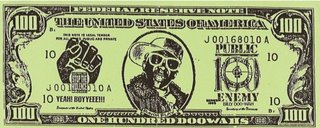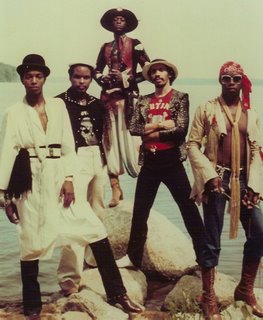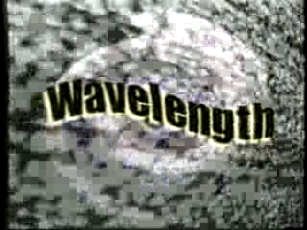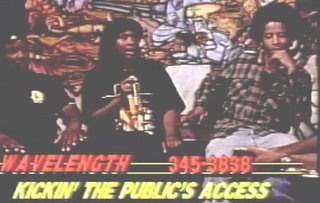
As you may have read elsewhere,
The Coup were involved in a serious bus accident recently. The group and its band survived, but most of their equipment and other essential items didn't. Boots says the band is without a way to generate income presently and doesn't expect an insurance pay out for another year. There's a donation box on his
myspace site.The Coup was one of only two national rap groups to make it to the cable studio for a live interview. They were supposed to perform, but someone in our crew forgot to bring the turntables. Pam, their DJ, was ready, she came in with a mixer and records. That would have been nice.
The Coup were one of the most political groups on the undergroud scene at the time. Their music laid out political agendas and revolutionary philosohpy over west coast beats. They did two albums with Wild Pitch before parting with the label. Since then, Boots and Pam have carved out a niche in the hip hop scene with a notable releases like Pick a Bigger Weapon on
Epitath Records.For now, here's The Coup on Wavelength. Who said the revolution couldn't be televised?
Craig: Yo, what's up, we got The Coup in the house. What's up?
E-Roc: What up homie?
Pam: What's up?
Boots: What's up man?
Craig: Did y'all have any trouble gettin' down here?
E-Roc: Yeah, we got lost! We just kept payin' that toll, man. Thirty-five cent.
Boots: You get lost here, you end up broke!
Craig: You guys come from Oakland. I guess the biggest rapper to come out of Oakland is Too Short. But y'all have a totally different sound then what's come out of Oakland so far. How did that sound develop?
Boots: Well you know, if you listen to it, it's not totally different, cause that's what we grew up around. Like, we still got the heavy 808 up in there, but the difference is in the live instruments stuff like that. We don't just sample, we'll redo the music with the original instruments, cause we want to get that phat mix to it, you know, the highs, the mids and the lows real clear. And you know that's what we like in our music.
Craig: I like the imagery on the CD. It's an African woman with a gun on her back. On the cover, you have like a fryin' pan. Why did y'all come up with these kind of images, this like revolutionary thing?
E-Roc: As far as the cover, you know, the album is entitled Kill My Landlord, so you now we try to make it like we were in the kitchen an' we down on our landlord cause our rent gots to be paid. Sometimes you ain't got the mil to pay it off, but the landlord always on your back. Basically, that's what we was tryin' to come through on the album.
Craig: This group boats a female DJ. What's the reception you get when you perform with other rappers? Do they take you seriously?
Pam: Know one really knows that I'm a DJ until I perform. I'm sure when I get on stage, some people say, you go girl, and some people look at me like okay, what is she gettin' ready to do. I am not Spindarella at all, because all my cuts, you will know. I cut very hard, I cut crisp, I transform I do all of that. And I practice ..
Boots: In other words, she's raw.
Pam: when I get off the stage, everybody respects me then. Because like, when they see a girl on the stage, Tch! (sigh) What she gettin' ready to do? Bugga Bugga? (gestures like she's scratching) I don't do none of that. I do tricks and stuff like that. So you know ...
Craig: Any female djs inspire you?
Pam: No.
(laughter)
P: There aren't any. The only one that inspired me, I gonna tell you, you may laugh, was Joe Cooley. That's when I started back in the day with Joe Cooley. And Jazzy Jeff and Q bert. I know everybody's heard of Qbert. But Qbert taught me a little somethin', so you know. That's how I got into djin'. So I'll be in that New York Seminar battle.
Craig: Oh okay. For world supremacy.
Pam: So I'll be there in July, next month.
Boots: If we coulda hooked it up, we woulda display somethin' for ya.
Craig: I wanted that to happen too. We might be at the seminar too. You wanna take a call?
Boots: Sure!
Craig: You got a question?
Caller: I wanna know how they got the name The Coup.
E-Roc: The Coup basically means to takeover and overthrow. And that's what we talk about in our music.
Boots: You know, we tell everyday stories that happen to brothers and sisters, but they got a message behind it. When people first listen to it, like, "Not Yet Free," some people sayin' it was gangsta. What it is is one step up, 'cause gangsta is talkin' about your surroundings, what we're talking about is how it got that way in the first place. So that's going to lead you to solve the problem at the source. So that's why we talk about takin' over.
Craig: That answer your question, man?
Caller: Yeah.
Craig: Thanks for calling. Tell us about the video we're about to look at, "Dig It."
Boots: Well, it's our second single, you know uh .. did y'all play "Not yet Free?"
Craig: Yeah.
Boots: Okay. Basically, if you listen to the lyrics, we're talkin' about things that the government does to go against movement that we might have in the community and all that, you know. The rest of it you can get from the lyrics.
Craig: What is the Mau Mau?
B: The whole name is the Mau Mau rhythm collective. What it is is a bunch of rap groups, Point Blank Range is one of the groups we're puttin' out, Tenth Planet is another group we're puttin' out. We all talk consciousness at different levels. And we also work in the community. We have study groups and all that type of stuff.
Craig: What's some of the things you've done?
B: We've done some struggles in the past involving police brutality. We led a march that involved 600 people when we went over and took over city hall at the city council meeting and had these 10 cops fired that were well known for terrorizing the community. We're involved in the this other case that had to do with the BART police, which is the subway there, the office shot a young man in the back as he was walking away, because he thought that this young black man was going to come back and shoot him at a later date. We're involved in a lot of different things. We're growin' and we're tryin' to get out there. We don't want to be just be talking about conscious in our music and then we'd be hypocrites cause we're not really doin' nothing except for makin' music and makin' money off of it. We want to, you know, go back and bring something back to the community.
